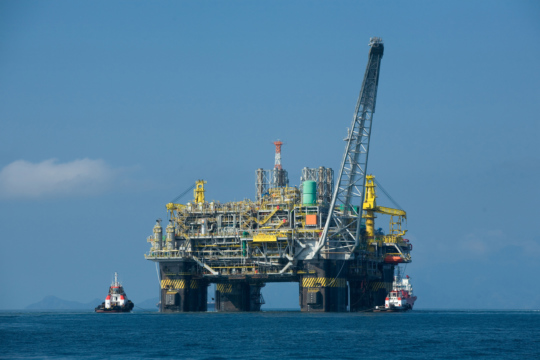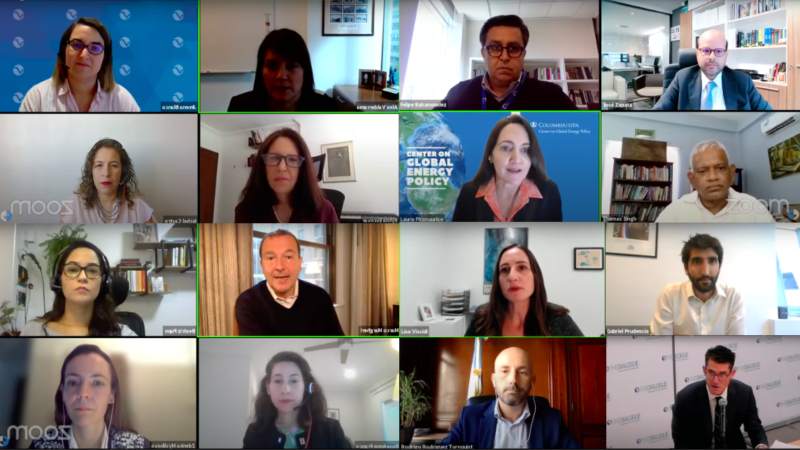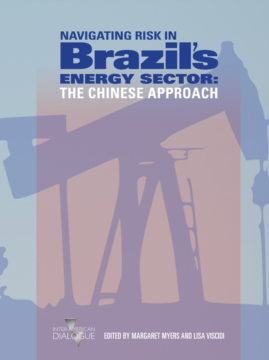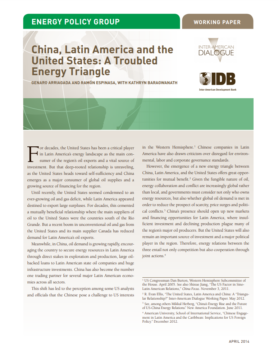
Latin America’s Oil Sector
Despite its prodigious petroleum reserves, many countries in Latin America are experiencing declining production. What explains the paradox?
While 2021 has been a year of transition for the energy sector in Latin America, it has also been a year of instability in the region’s political conditions and social environment. With midterm elections in Mexico altering political dynamics, protests and social movements spreading across Latin America, the continued Covid-19 crisis, and a growing awareness of the impacts of climate change, a volatile, unpredictable sociopolitical landscape has complicated energy investments and energy production in the region. However, with the growing global consensus on the urgency of climate action, and a new presidential administration in the United States, the region is now seeing unprecedented financing and cooperation for clean energy technology and climate projects. Under this context, industry experts, government officials and corporate representatives convened virtually to discuss the challenges, opportunities and changes in Latin America’s energy markets at the Fifth Annual Latin America Energy Conference.
As Chief Climate Officer at the United States Development Finance Corporation (DFC), keynote speaker Jake Levine opened the conference by outlining the DFC’s top priorities for and contributions towards development in Latin America and the Caribbean. He discussed the role of the DFC in mobilizing private capital to increase climate finance. Currently, most of the money invested in the region focuses on mitigation rather than adaptation, and most public funds are being invested in Brazil, Colombia, Mexico and Chile. However, the DFC is expanding its focus on adaptation and increasingly targeting lower-income countries. Levine noted that although climate change is of this generation's greatest challenges, it also presents an opportunity to engender economic growth, raise standards of living and foster healthier communities.
During the next panel, speakers discussed low-carbon technologies in the oil and transport sectors, explaining that energy must be clean but also meet rising demand. Panelists agreed that policy development is necessary for facilitating and enabling the transition to renewable energy. Moreover, the upcoming United Nations Conference of the Parties (COP26) will be key in guiding these policies and encouraging investments in research and development.
The third panel examined political risks in the oil sector. Speakers noted that in order to continue funding social programs in some countries, governments continue to rely on revenue from the oil and gas sector, especially in light of the fiscal crises brought on by the COVID-19 pandemic.
The fourth panel examined how political instability, anti-government protests, and civil unrest impact foreign and private investment in Chile, Guyana and Colombia. Panelists agreed that environmental laws are not always upheld, that social unrest can lead to a derailing of energy development, and that members of civil society do not feel that regulations address their concerns about the environment.
During the final panel, senior government officials discussed the energy transition in Argentina and Chile. Panelists emphasized the importance of political dialogue to enable consideration of the needs of different sectors and promote a just and sustainable transition to clean energy.
Despite its prodigious petroleum reserves, many countries in Latin America are experiencing declining production. What explains the paradox?
Brazil’s oil and gas and electricity sectors are an important destination for Chinese direct investment.
The US’ standing as the main consumer of Latin America’s oil exports is unraveling as China emerges as a major consumer of global oil supplies.
 Inter-American Dialogue
Inter-American Dialogue

